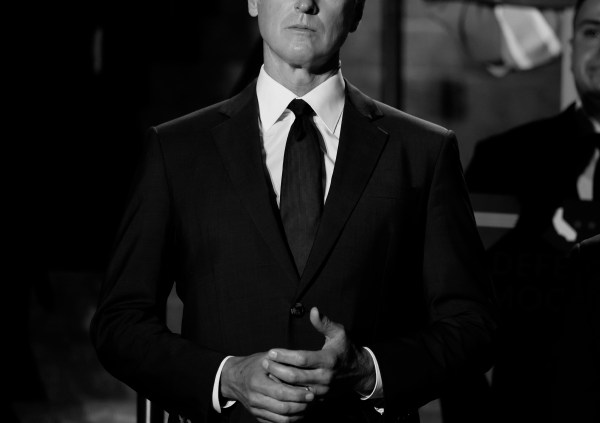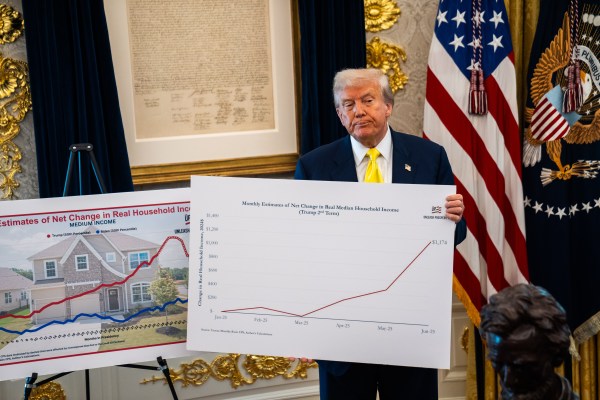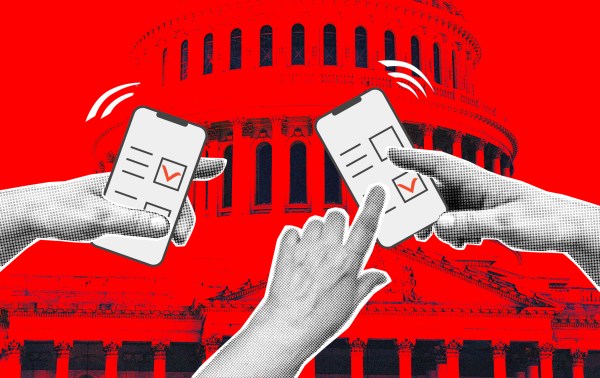Historically, human progress has been a story of imperfect people who attempt to build a better world. But today’s self-described progressives equate progress with the embrace of their style of neo-totalitarianism. Will President-elect Joe Biden stand up to the extremism that has been on display in the months since protesters rioted in the name of racial justice?
Demonstrators tore down statues and sensitive university administrators rushed to form committees to rename buildings and institutes that had recognized slave owners. Will this movement continue during the Biden presidency, or will there be a reprieve? Will more buildings and institutes be “un-named,” following the trajectory of Stanford University’s Jordan Hall and Princeton’s Woodrow Wilson School, to atone for the transgressions of their namesakes? These are not trivial questions: They cut to the heart of the cultural crossroads where the United States and the Western world now stand. President-elect Joe Biden will have to decide which road he wants to travel down.
A New York Times subhead from last June declared: “Statues and monuments that have long honored racist figures are being boxed up, spray-painted, or beheaded,” as if every target is foremost identifiable as a racist and as if all three endings are one and the same. The list of offending figures is long, from the more obvious—Confederate leaders, British slave traders—to the more contentious: Christopher Columbus and Winston Churchill, Abraham Lincoln and Theodore Roosevelt, the latter two dismantled in Portland, Oregon. In Madison, Wisconsin, protesters went so far as to tear down a statue of an abolitionist who died fighting in the Civil War. Personally, I’ve never been “triggered” by a statue, although I can certainly sympathize with Russians, Iraqis, and Albanians who wanted to see the ubiquitous images of their tormentors Lenin, Stalin, Saddam Hussein, and Enver Hoxha gone.
But it is the manner of selection and means of destruction that give me, and should give all of us, great pause. We are witnessing relatively little in the way of reasoned debate and very much in the way of eruptions of white-hot, nihilistic rage. Like Stalin’s infamous show trials or the Chinese Cultural Revolution’s Struggle Sessions, guilt has already been decided, and the outcome is designed as a warning to politically incorrect transgressors. The equivalency determinations of New York Times headline writers aside, there is a vast difference among removing statues in response to community consensus, defacing them with paint, and completely desecrating them.
Moreover, it isn’t as if the destroyers want to end the tradition of honoring individuals—rather, they want to change the list of honorees. Recent Portland mayoral candidate Sarah Iannarone, who ran on a platform of “transformative change,” suggested where her sympathies lay when she campaigned in a skirt emblazoned with the faces of revolutionaries Che Guevera, Stalin, and Mao. Mass murder is apparently acceptable if it is in service to the “correct” ideals.
It may be tempting to dismiss this as the far-left fringe, but Iannarone nearly won her challenge to (far-left) Mayor Ted Wheeler, losing by only 6 points and gathering nearly 150,000 votes in the process. It says something that she would make such a fashion statement part of her campaign—and something more that such odious views were unobjectionable to so many voters.
And this is the problem for President-elect Joe Biden: Gone are the quaint Clinton-era standards for standing up to extremism. In the 1990s, Bill Clinton was lauded for his ”Sister Souljah” moment. In a speech to Jesse Jackson’s Rainbow Coalition, he called out the rapper for her comments to the Washington Post in the wake of the Rodney King riots—“If black people kill black people every day, why not have a week and kill white people?”—and for rapping “If there are any good white people, I haven’t met them.” Today’s ideological purists cannot be dismissed or rejected by being mentioned in a speech, whether written by Jon Meacham or anyone else. They also cannot be placated.
I am alarmed because I have seen this many times before: violent, divisive language becoming real violence in the streets. I saw this firsthand as a teenager at a Muslim girls’ schools in Kenya. We were taught to disparage girls who wore crosses, which eventually led to us ripping crosses off of girls’ necks. I remember others tearing down crosses wherever they could find them.
I also remember this evolution happening in Rwanda, where the Hutu rhetoric moved from boiling anger with the Tutsis, to calls on the radio to use any weapon at hand against the Tutsis, to a mass genocide.
Over the summer, protesters in Seattle took over six blocks of the city’s Capitol Hill neighborhood, largely with the support of the city’s mayor, after the police department abandoned a nearby precinct. In the three weeks before Mayor Jenny Durkan issued an order to disband what came to be known as the Capitol Hill Organized Protest zone, four separate shootings left two people dead, and the area was beset by robberies and alleged sexual assaults.
This past October, we saw actual beheadings committed in France by Islamic jihadists. They targeted a secondary-school teacher, Samuel Paty, who was decapitated outside of Paris for the offense of showing his students two cartoons of the Prophet Mohammed. Paty’s murderer, an 18-year-old Russian of Chechen descent, who had been living in France as a refugee since age 6, posted on Twitter immediately after: “To Macron, leader of the infidels, I executed one of your hellhounds who dared to belittle Muhammad, calm his fellow human beings before a harsh punishment is inflicted on you.” Two weeks later, three people inside a Catholic church in Nice were killed by a Tunisian migrant, who nearly beheaded one and stabbed the other two in the neck, shouting “Allahu Akbar.”
The line between destroying images of people deemed unacceptable and destroying living, breathing people themselves has become very thin. It’s equally appalling and unacceptable whether it comes from woke radicals, jihadists, or Steve Bannon speaking of Dr. Tony Fauci.
They are, quite literally, indicter, prosecutor, judge, jury, and executioner for their own hierarchy of crimes. Let’s implicitly sanction the destruction of images of Churchill, Teddy Roosevelt, and Abraham Lincoln for the crimes of being judged as 21st century racist imperialists, but let’s ask the thoughtful question, “Is France Fueling Muslim Terrorism by Trying to Prevent It?” as the New York Times Opinion page did one day after the brutal slayings and attempted beheadings inside the church in Nice.
The Romans, no slouches in the statue department themselves, had a proverb that says simply, “It is easier to pull down than to build up.” Indeed, it is easy to break things up. The hard thing is building. Americans of all manner of perfections and imperfections built a great country. Will Joe Biden stand silent if a determined faction continues to pull the country down?
Ayaan Hirsi Ali is a research fellow at the Hoover Institution and founder of the AHA Foundation. She served as a member of the Dutch Parliament from 2003-2006.






Please note that we at The Dispatch hold ourselves, our work, and our commenters to a higher standard than other places on the internet. We welcome comments that foster genuine debate or discussion—including comments critical of us or our work—but responses that include ad hominem attacks on fellow Dispatch members or are intended to stoke fear and anger may be moderated.
With your membership, you only have the ability to comment on The Morning Dispatch articles. Consider upgrading to join the conversation everywhere.